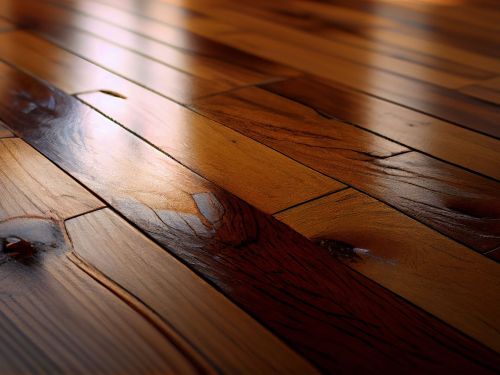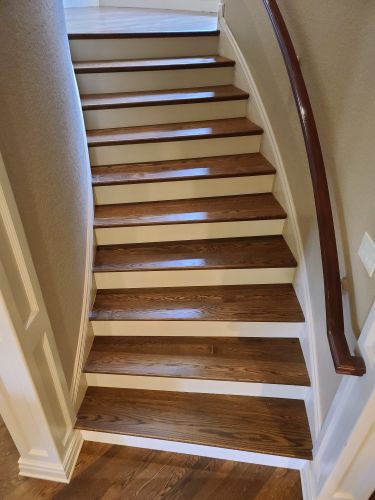Keep Your Floors Beautiful and Long-Lasting
Hardwood flooring is one of the most popular choices for homeowners because of its warmth, elegance, and durability. However, maintaining hardwood floors properly is essential to preserve their beauty and ensure they last for decades. Whether you’ve installed solid or engineered hardwood, the right care routine can protect your investment. This hardwood floor maintenance guide provides step-by-step cleaning tips, seasonal advice, products to avoid, and signs that it’s time to refinish your floors.

Daily and Weekly Cleaning Methods
1. Sweep or Dust Daily
Dust, dirt, and pet hair can act like sandpaper on hardwood floors, scratching the surface over time. Use a microfiber mop or soft-bristle broom to pick up debris daily.
2. Vacuum Weekly
Use a vacuum with a hardwood floor attachment (no beater bar) once or twice a week to remove debris from crevices and between boards.
3. Damp Mop Occasionally
For deeper cleaning, use a damp—not wet—mop with a hardwood floor cleaner recommended by the manufacturer. Excess water can damage wood, so always wring out the mop thoroughly.
Seasonal Hardwood Floor Maintenance Tips
Wood expands and contracts depending on humidity and temperature. In areas like the Pacific Northwest, where moisture levels fluctuate, seasonal care is especially important.
Spring & Summer
Keep humidity levels between 30–50% using a dehumidifier/air conditioning to prevent warping.
Fall & Winter
Use a humidifier when indoor heating dries out the air, preventing gaps between boards.
Year-Round
Place mats at entrances to catch dirt, and use area rugs in high-traffic spaces to reduce wear.
Products to Avoid on Hardwood Floors
The wrong cleaning products can cause permanent damage to hardwood flooring. Avoid these common mistakes:
- No Steam Cleaners: High heat and moisture can cause wood to swell and peel.
- No Vinegar or Ammonia Solutions: These can dull the finish and erode protective coatings.
- No Abrasive Cleaners: Scouring pads, steel wool, and harsh chemicals scratch or discolor wood.
- No Oil-Based Soaps: They leave residue that attracts dirt and makes refinishing difficult later.
Stick with pH-balanced hardwood floor cleaners specifically formulated for wood.
Signs It’s Time for Refinishing
Even with the best maintenance, hardwood floors eventually need refinishing to restore their shine and protection. Look for these signs:
- Fading or Discoloration: UV rays and heavy use can dull the surface over time.
- Deep Scratches: If scratches penetrate through the finish into the wood, refinishing is needed.
- Water Damage: Warping, cupping, or stains indicate compromised protection.
- Worn Finish: If the floor looks dull even after cleaning, the protective coating may be worn away.
On average, hardwood floors need refinishing every 7–10 years, though high-traffic areas may require it sooner.
Preventive Care Tips
- Felt Pads on Furniture: Place under chairs, tables, and couches to prevent scratches.
- Trim Pet Nails: Pets can leave marks if nails are too long.
- Wipe Spills Immediately: Standing water or liquid stains can damage the wood and cause warping.
- Avoid Shoes Indoors: High heels and shoes with grit on the soles are common culprits for dents and scratches.
Extend the Life of Your Hardwood Floors with Proper Care
Hardwood flooring is a long-term investment, and with the right hardwood floor care routine, you can enjoy its natural beauty for generations. Regular sweeping, proper cleaning products, seasonal humidity control, and preventive measures will protect your floors from scratches, moisture damage, and premature wear. When the time comes, refinishing restores hardwood to like-new condition, extending its lifespan even further. By following this hardwood floor maintenance guide, homeowners can preserve both the value and elegance of their flooring for years to come.

